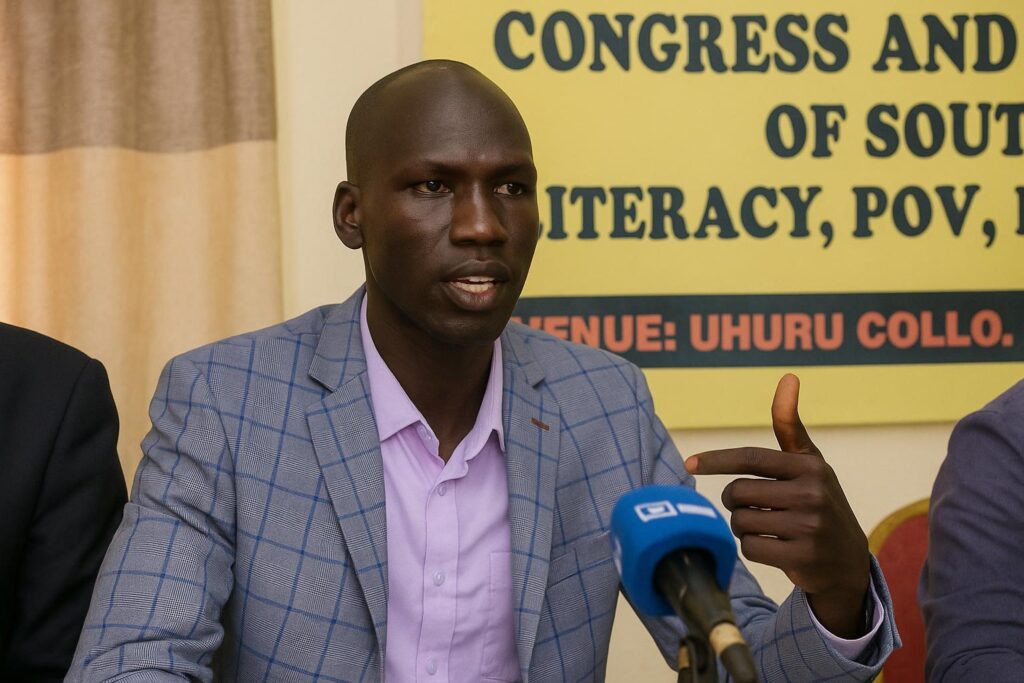Rule of Law Debate Intensifies
Deng-bil William Aguer, leader of the African People’s Congress, believes South Sudan’s future hinges on a clear, predictable judiciary. Speaking in Juba, he argued that legal certainty underpins economic growth and social cohesion.
He recalled regional traditions of communal forgiveness yet warned that modern crime waves demand firmer responses. “Balance without accountability risks paralysis,” he said, urging lawmakers to modernise legislation without eroding cultural values.
Machar Trial as Litmus Test
The ongoing High Court case pitting First Vice President Dr. Riek Machar Teny against the SPLM-IG is, to Aguer, “a textbook chance to prove no citizen sits above the law.” Observers across Juba echo that sentiment.
Analysts note that transparent hearings could reassure investors and conflict-weary communities. Any perception of political interference, they warn, might reignite mistrust just as fragile cease-fires begin to hold.
Armed Struggle Questioned
Aguer dismisses armed rebellion as “an outdated shortcut to power.” Citing fifteen election-less years, he nonetheless argues that street protests, party building and civic education remain legitimate, constitutional routes for opposition voices.
His stance places pressure on groups within the Sudan People’s Liberation Movement in Opposition, often accused of cyclical violence. “Guns silence the same citizens you hope to convince,” he told The Dawn Newspaper.
Cracking Down on Atrocities
Child abduction, cattle raiding and communal attacks continue to scar Upper Nile and Jonglei. Aguer calls for unapologetic sentencing to deter perpetrators, arguing that selective leniency only emboldens repeat offences.
Government spokespersons insist security forces are stepping up arrests. International monitors, meanwhile, urge authorities to pair enforcement with witness protection to avoid retaliatory cycles.
Prospects for Peaceful Reform
For Aguer, a credible rule of law could anchor the delayed 2024 elections and open doors for regional trade. “Structure breeds stability; stability attracts investment,” he remarked, linking courtroom integrity to future prosperity.
Youth activists interviewed in Wau share cautious optimism. They demand consistent application of verdicts but welcome any shift that turns legal theory into everyday practice.


